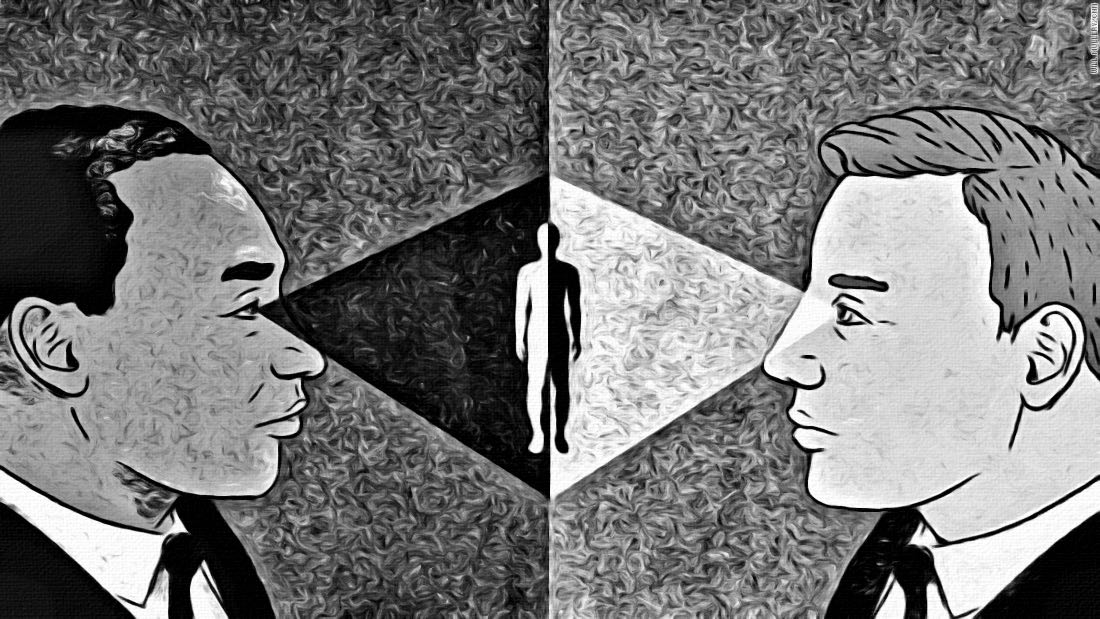Liberals might be shocked by the irony of the Trump presidency: there has been marked improvement for minorities, plus an un-expected decline in racial prejudice. If Democrats don’t view this as good news, it is only because it undermines the efficacy of identity-shaming; such as Mayor Pete’s proposal to expunge the names of Presidents Jefferson and Jackson. That dumb idea was a virtue-signal to black voters to preserve racism as a 2020 campaign issue. Hmm – he might be out of touch with minority voters.
Between 2008 and 2016, the far left came to reject the social construct of majoritarian tolerance, which had resulted from the civil rights victories of the sixties. When a Christian majority tolerated Jews banning the Lord’s Prayer in public schools, and a white majority tolerated black students being advantaged by affirmative action, there is tangible evidence of progress. Sadly, it was not enough for a new breed of angry progressives.
After 2008, the Obama presidency encouraged an uneasy coalition of aggrieved (and loud) activists. Feminists wanted more than legal abortion (e.g. abortion on demand). Gays wanted more than marital rights (e.g. Christian-baked wedding cakes). Black activists insisted reparations were due. By 2016, this coalition was primed to attack a centrist – so Donald Trump was understandably not their president.
The out-party narrative linked the new Republican president to an alleged increase in right-wing nativists and white supremacists. Obviously, Mr. Trump’s over-the-top insensitivity invited this connection, and it is pointless to defend Trump’s tweets and name-calling. He is probably the least “presidential” and most “insulting” man to ever sit in the Oval Office, which begs the question: is it even possible that racial attitudes could improve during his presidency? Hard to say for sure, but much evidence suggests improvement.
WHITE RACIAL PREJUDICE HAS DECLINED. Two professors at the University of Pennsylvania, Dan Hopkins and Samantha Washington, have measured racial attitudes of 70,000 Americans (in random samples of 2,500) since 2008. Their data (chart below) shows a decline in racist opinions since 2016. It also shows a slight increase in Republican and Independent racial prejudice from 2012 to 2016. This data suggests Obama invited increased prejudice, while Trump invited decreased prejudice.

The professors admit their anti-Trump bias, and they feared the “normalization of prejudice [and] expressed leadership” would trigger an increase in racist opinions. That did not happen, so Hopkins and Samantha suggest “Trump’s rhetoric clarified anti-racist norms [and] his presidency pushed public opinion in the opposite direction.” Their findings debunk the election night fears of a Trump presidency launching nationwide whitelash.
MINORITY MOODS ARE CHANGING. While the Hopkins-Washington study provides evidence that white racial prejudice is on the decline, it does not suggest minority communities feel race relations are getting better. It is reasonable to suspect Trump’s worst comments (such as Mexican rapists and sh*thole countries) invite fear and loathing amongst Latinos and African-Americans. Again, the data suggest otherwise.
It appears Hispanics and African-Americans can rise above what President Trump says to focus on his deeds, especially kitchen-table issues. Marist reported Latino approval at 50% in January. Politico recorded 45% approval in February. McLaughlin/PBS found 50% approval in March. And, while Trump won only 8 percent of the black vote in 2016, the NCAAP reported Trump’s black approval jumped to 21 percent in August 2018. This followed a Reuters poll in May that showed Trump’s black approval at 22 percent. This is evidence the mood in minority households is changing.
My snapshot takeaway is that Hispanics and Blacks are more down-to-earth than imagined by either political extreme. Pew Research provides the support data for my conclusion. (1) They are church-going: three-fourths of blacks and two-thirds of Latinos say religion is very important to them. (2) The economy is their top 2020 election issue: 86 percent of Hispanics and 79 percent of Blacks cite the economy as the top campaign issue. Don’t look now, but these minority groups are polling like Republicans.
An overwhelming majority of Latinos and Blacks just want to enjoy the American Dream; therefore, the current economic expansion and better paying jobs should change their views on white privilege – especially when the greatest income growth is in the lowest income quartile (source: Larry Kudlow). According to the US Bureaus of Census and Labor, W2 earnings and median household incomes for minorities are experiencing at least 3.5% growth, and unemployment is at record lows.
Mind you, Donald Trump is no Bobby Kennedy, but he is also no enemy of diversity, tolerance and opportunity. His traditional views on abortion and gender are similar to those held by most Latinos and Blacks. In fact, these minority communities want safe neighborhoods too, with police that protect them – not persecute them. Again, the astute political observer must distinguish between the media narrative and fact.
If you think Trump’s tough law-and-order rhetoric is patently anti-black, then you’d be mistaken. His reform of the Clinton crime bill, which singled out black drug arrests for incarceration, is widely applauded in black communities. And – if you think Trump’s immigration rhetoric is patently anti-Hispanic, you’d be wrong. According to the LA Times, 90 percent of the students in the CBP’s citizens academy are Latinos – and over half the Border Patrol are Hispanic-Americans.
As a final thought, wouldn’t it be great if America moved beyond identity politics to situational politics? Perhaps that is what the data and polling numbers indicate: that is, white Americans and minorities can decide a situation demands attitudinal change. If my life’s work has taught me anything, it is that attitudes matter for good to happen.
